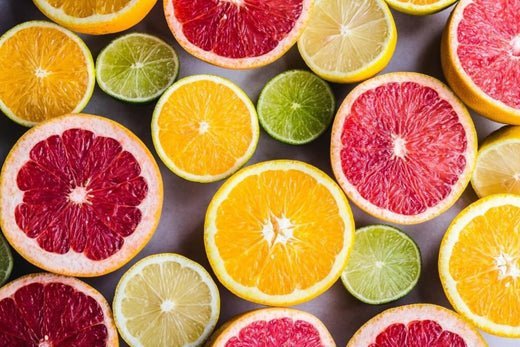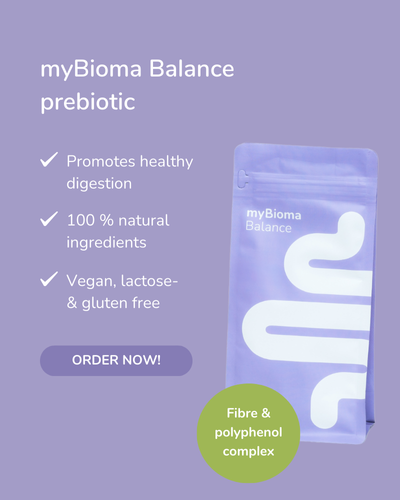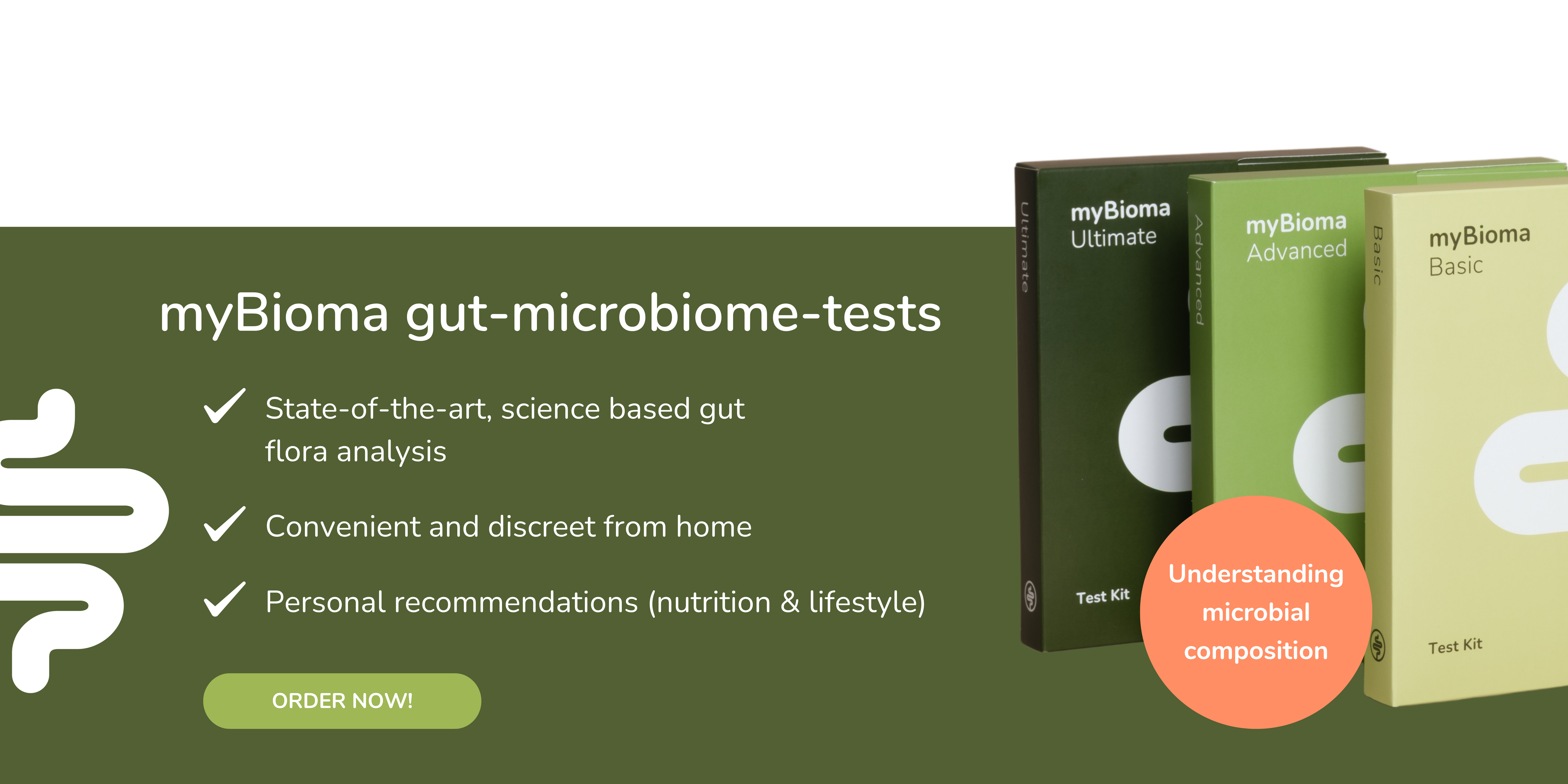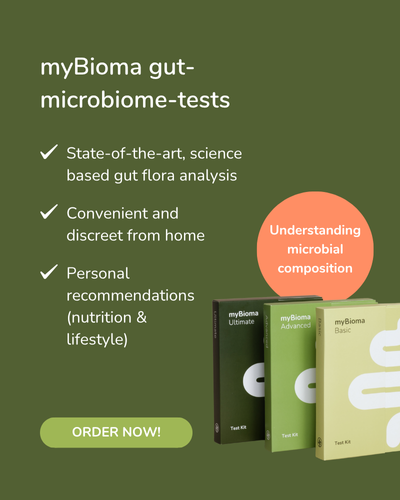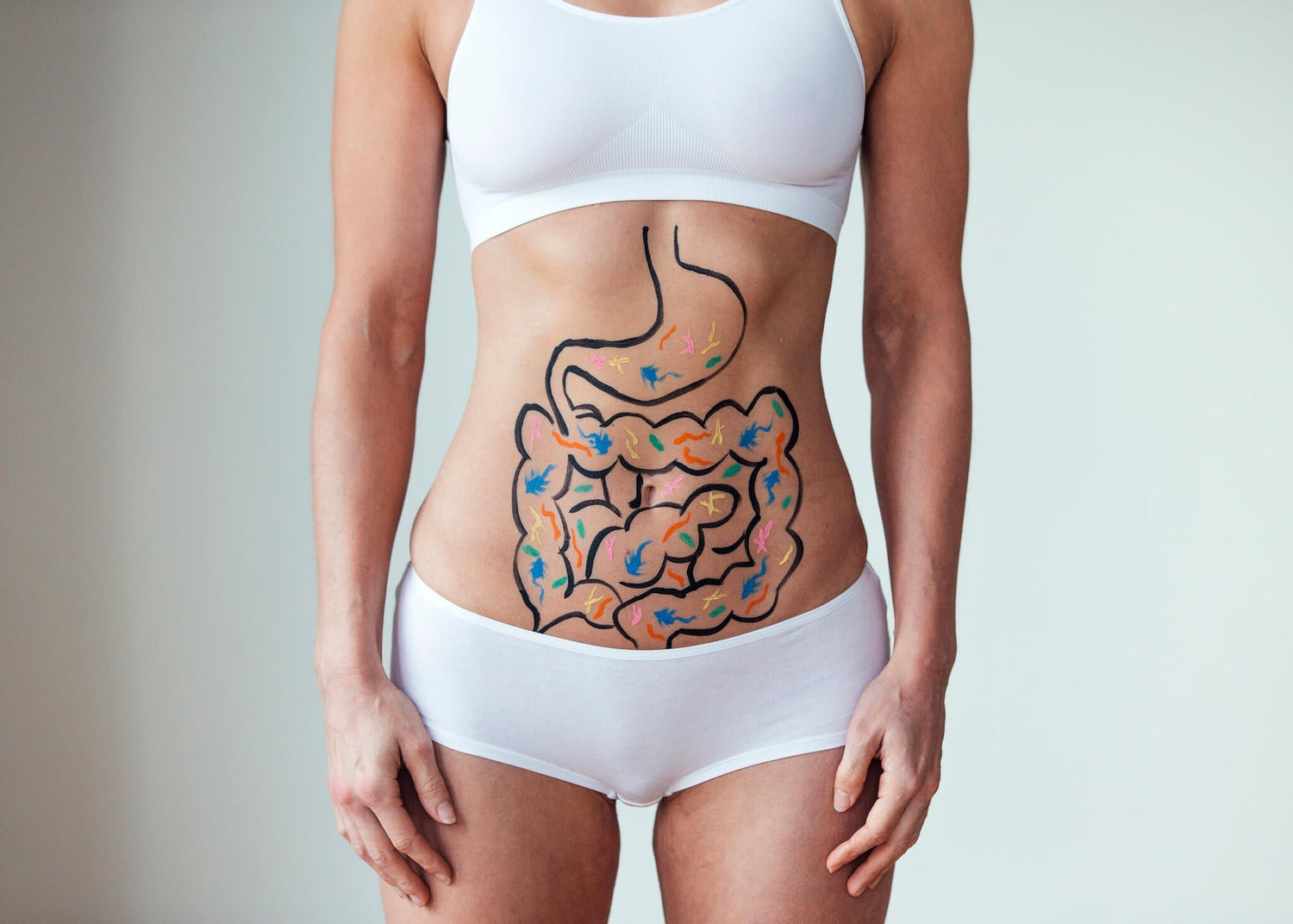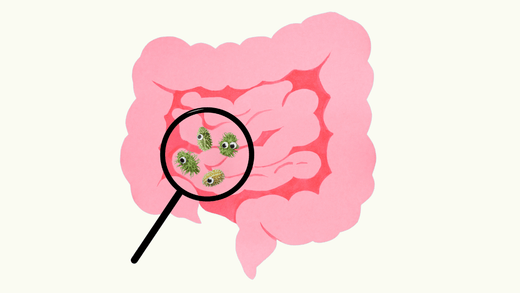Leaky gut syndrome is the subject of much discussion and debate. It all revolves around the intestinal wall - the protective layer that separates food from the inside of the body. If the intestinal wall becomes "leaky", dangerous substances can penetrate the inside of the body. The consequences can be varied - from abdominal pain and diarrhea to constant fatigue. However, the term "leaky gut" is used colloquially and there is still no uniform definition of what exactly happens in this disorder. Central to the discussions are questions such as: How is the intestinal wall damaged? What role does the intestinal flora play? We clarify the many questions in 10 steps and show you whether and how the gut becomes "leaky".
1. The wall in the gut
Before we can even talk about a "leaky" gut, we first need to take a look at the healthy gut, which has a stable intestinal barrier. But what does that actually mean?
Your intestine runs through your body like a tube from your mouth to your anus and is constantly in contact with the outside world through these two openings. All kinds of substances can enter our body with food. It is therefore very important that our intestines draw a line between the outside world and the inside of the body with the blood circulation. So when we talk about a "barrier", we mean the border formed by the inside of the intestine. It is in constant contact with the chyme (further up) and the stool (further down towards the exit). It is essential for a healthy body to be able to absorb nutrients and exclude harmful substances. It therefore needs a "dense wall" through which nothing can penetrate, with "gates and guards" that allow food to enter in a controlled manner. This "wall" is built from the intestinal mucosa - whose structure we will now look at. (1)

The intestinal mucosa is the innermost layer of the intestine - it is incredibly important for your health.
2. The intestinal mucosa
Strictly speaking, the intestinal mucosa is the innermost layer of intestinal cells and their products. These intestinal cells produce countless substances that serve as a defense against pathogens. They also form the mucus that lies protectively over them. Most importantly, of course, the intestinal cells absorb nutrients from food and pass them on to the body's circulation. The intestinal mucosa therefore has its hands full - it supplies us with nutrients and protects us from intruders. (1, 2)
3. Gates and guardians
An interesting detail: the "gates of the wall" described above are passages between the intestinal cells through which substances, such as sugar molecules, can pass through the intestinal wall. However, these gates are only open to very specific nutrients. Immune cells work everywhere in the intestinal mucosa, acting like guards to ensure that intruders do not enter the body's circulation. If harmful substances or pathogens reach the immune cells, they react with inflammation to eliminate the intruder. This gives the intestine a huge immune system. (1, 2)

A healthy diet with sufficient fiber contributes to a stable intestinal barrier.
4. What the intestinal flora does
And where are the intestinal bacteria located? They are located on the mucous membrane, or more precisely on the mucus. The bacteria are in constant contact with food and mucus - you could say they act as mediators. We absolutely need our bacteria because they help us to digest food and make many nutrients available to us in the first place. We could not absorb a large part of our food without them! However, the bacteria don't work for our benefit, but because they get a lot of "goodies" (especially fiber) out of it. From time to time they also break down our intestinal mucus - which our cells naturally don't like. However, this is usually not too bad, as our intestinal cells are constantly producing new mucus and thus regenerating themselves. (1)
5. What is leaky gut?
Now we know what a healthy intestinal barrier looks like, we can take a look at its dysfunction. What is meant by a leaky gut - do holes really develop? No, it's not that bad! In reality, the connections between the intestinal cells loosen. No cells fall out, but you can imagine that the otherwise solid "wall" of the intestinal wall develops tiny gaps. As a result, more substances from the outside world (food and stool) can penetrate into deeper layers of the intestine and possibly into the circulation. This has consequences for the intestine itself, and presumably also for the rest of the body. (1, 3)

If the barrier is disrupted, the connections between the intestinal cells loosen.
6. The bad guys
Many factors could damage the intestinal mucosa and we probably do not yet have a complete list. Nevertheless, there are already some very exciting insights from scientific studies. Severe diarrheal diseases can damage the intestinal barrier (at least in the short term). For example, the bacterium enteropathogenic E. coli can cause the intestinal cells to produce fewer components for the cell connections of the intestinal wall, which weakens the intestinal barrier. (Please don't panic, almost all E. coli subtypes are harmless and live in us as part of the normal microbiome!) (4)
In another study, something particularly interesting was discovered: some intestinal bacteria tend to break down too much of the important intestinal mucus when they get too few other food sources. The bacteria feed primarily on fiber from food, but if there is too little of it, they break down more mucus. Once the mucus is gone, the bacteria reach the intestinal cells and trigger an inflammatory reaction. This inflammation is usually only mild, but could last longer and possibly contribute to chronic inflammatory bowel diseases such as Crohn's disease and ulcerative colitis. However, this is probably only one of many factors that promote these diseases. (1)
7. Hyperactive immune system
As we have seen, the immune system plays an extremely important role in the gut. Sometimes, however, the immune system becomes extremely sensitive and reacts to harmless substances. If the immune cells in the intestine are constantly active, this can result in a low level of inflammation - which weakens the intestinal barrier. This overreaction of the immune system can be genetic, but can also be caused by our modern lifestyle. Food additives, such as emulsifiers, and toxic substances, such as alcohol, are suspected of weakening the intestinal barrier, partly because they irritate the immune system. Another factor that overactivates the immune system and is always underestimated is stress. It is therefore particularly important to take regular time out and relax the body. (1, 5, 6, 7)
8. How do you recognize leaky gut syndrome?
How do you know if you really have leaky gut syndrome? The symptoms can be varied and range from diarrhea, abdominal pain and bloating to tiredness, fatigue and mood changes. All of this can occur with irritable bowel syndrome and many other conditions, which is why it is important that you are examined by a doctor. There are already a number of tests that check intestinal permeability, such as the lactulose mannitol test. Here you can test your microbiome and find out whether it tends to impair the intestinal barrier. Find out more here !
9. Leaky gut - and now what?
"Repairing" a disrupted gut barrier can be difficult and requires patience. Unfortunately, there is hardly any data to support advice and treatments. Probiotics, i.e. live bacteria in dairy products or for ingestion, seem to help, at least in the case of leaky gut due to a diarrheal infection. However, there are some steps and tricks to consider based on the causes. A diet that promotes a healthy microbiome is rich in fiber from vegetables, whole grains and fruit. In addition, you should not trust food additives and convenience products and eliminate them from your diet. (8)
10. What everyone really needs
Apart from diet, many other lifestyle factors also play a major role in a disrupted intestinal barrier. Stress is at the center of it all - whether physical or mental. Especially when you have digestive problems, you feel exposed and helpless. The feeling of having to get your bowels "back under control" can also make the situation even more difficult. That's why it's important to pay attention to balance and recovery phases! If you are gentle with your body and put less pressure on yourself, you also give your bowels a break and the chance to recover.

Fresh air and nature provide relaxation and balance.
References
- Martens EC, Neumann M, Desai MS. Interactions of commensal and pathogenic microorganisms with the intestinal mucosal barrier. Nat Rev Microbiol. 2018.
- Peterson LW, Artis D. Intestinal epithelial cells: regulators of barrier function and immune homeostasis. Nat Rev Immunol. 2014;14(3):141-53.
- Resta-lenert S, Barrett KE. Live probiotics protect intestinal epithelial cells from the effects of infection with enteroinvasive Escherichia coli (EIEC). Gut. 2003;52(7):988-97.
- Clayburgh DR, Shen L, Turner JR. A porous defense: the leaky epithelial barrier in intestinal disease. Lab Invest. 2004;84(3):282-91.
- Lerner A, Matthias T. Changes in intestinal tight junction permeability associated with industrial food additives explain the rising incidence of autoimmune disease. Autoimmun Rev. 2015;14(6):479-89.
- Chassaing B, Van de wiele T, De bodt J, Marzorati M, Gewirtz AT. Dietary emulsifiers directly alter human microbiota composition and gene expression ex vivo potentiating intestinal inflammation. Gut. 2017;66(8):1414-1427.
- Elamin E, Masclee A, Troost F, et al. Ethanol impairs intestinal barrier function in humans through mitogen activated protein kinase signaling: a combined in vivo and in vitro approach. PLoS ONE. 2014;9(9):e107421.
- Zmora N, Suez J, Elinav E. You are what you eat: diet, health and the gut microbiota. Nat Rev Gastroenterol Hepatol. 2018


